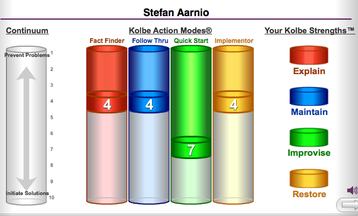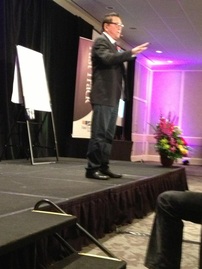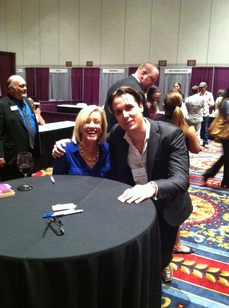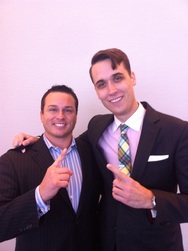
Freedomway.ca
facebook.com/stefanaarnio
https://twitter.com/stefanaarnio
http://ca.linkedin.com/in/stefanaarnio
Get Stefan Aarnio's book "Money People Deal: The Fastest Way to Real Estate Wealth" at MoneyPeopleDeal.com!
Remember: Please share this article if you found it enjoyable!
The brilliant American entrepreneur Bill Bartmann once asked the question: "Where do you go to catch a fish?"
He remarked that most people would say "a lake", "a river", "a stream", "the ocean" etc. and all of these are bodies of water do indeed contain fish.
Most entrepreneurs and real estate investors try to catch fish randomly in the ocean. They spend thousands of dollars on fishing line, casting nets, driving their fishing boats far away from land to catch the proverbial fish in their business - the customer.
The time spent chasing the fish, the money spent on the gas, the risk of bad weather, the cost of the boat and the crew are often too much for an entrepreneur to bear. Many businesses are bogged down with too much overhead because we think that we need to own the boat, spend the money on the gas, own the nets, own the fishing rods, hire a crew and take all the risks of the storm.
Oftentimes, these entrepreneurs will venture into the water and come home empty handed with no fish. The ocean, the lake, and the river all vast bodies of water and the chances of catching fish can be slim.
Catching fish, and catching customers in the traditional sense has a very high risk and a relatively low chance of success.
I once spent $2700 on a magazine advertisement that only produced 1 phone inquiry for a business that I just started. The expense wiped out my business and my boat capsized. The salesperson who sold me the ad told me that it would be a great investment and that I would get lots of customers. The only person who made money on the transaction was the salesperson and the magazine. In my foolishness, I was the fisherman who had bought the expensive boat, bought the nets, bought the lines and hired the crew to catch no fish. I may as well burned my cash because my money was never coming back. I told myself I would never do traditional advertising again.
But how would Bill Bartmann catch a fish? The question he asks has an answer better than all others. While most people say a river, lake, stream or ocean, Bill's answer is smart. If Bill were to catch a fish, he would go to a fish farm.
Some of you reading may say "that's cheating", but I can guarantee that Bill would catch more fish at a fish farm than most would by taking their chances in the ocean.
Of course, going to a fish farm may be associated with a premium, but the premium would be well worth it. The fish at the fish farm are trained to swim to the surface when it's feeding time, they can hear your footsteps at the edge of the tank and are ready for the food you are about to give them. They are fed throughout the day and any amount of fish can be harvested with no risk and all for a small fee.
Outside of fishing, where can an entrepreneur find a proverbial fish farm for customers? Anyone with a list of customers, or a group, or a club, or a media outlet can be a fish farm. Anyone who is a centre of influence can be brought into a joint venture in which you offer your product or service and pay the influencer a fee on all sales generated.
If it's so easy, then why doesn't every entrepreneur skip traditional advertising, forget the fishing boat and run straight to the fish farm? There are two things that hold most people back:
1) Most entrepreneurs and investors don't know about joint ventures or the "fish farm" mentality.
2) Most entrepreneurs are too cheap or greedy to pay the fish farmer his fee to access the fish.
The biggest expenses in life come from the opportunities that are not capitalized. It is time to change the way we think about lead generation, get creative and explore new avenues for growing our businesses!
Action Step: Analyze your ideal customer and begin to search for centres of influence or "fish farms" where these customers congregate. Do some research and figure out how much it would cost per sale to access this new audience.
Thanks for reading!
Stefan Aarnio
Freedomway.ca
facebook.com/stefanaarnio
https://twitter.com/stefanaarnio
http://ca.linkedin.com/in/stefanaarnio
Get Stefan Aarnio's book "Money People Deal: The Fastest Way to Real Estate Wealth" at MoneyPeopleDeal.com!
P.S: Please share this article if you found it enjoyable!









 RSS Feed
RSS Feed

